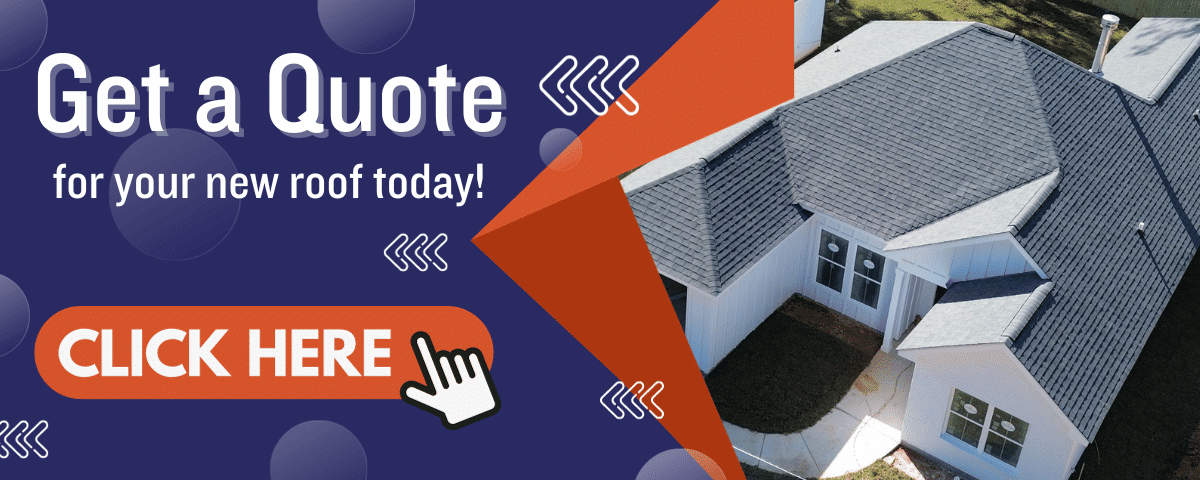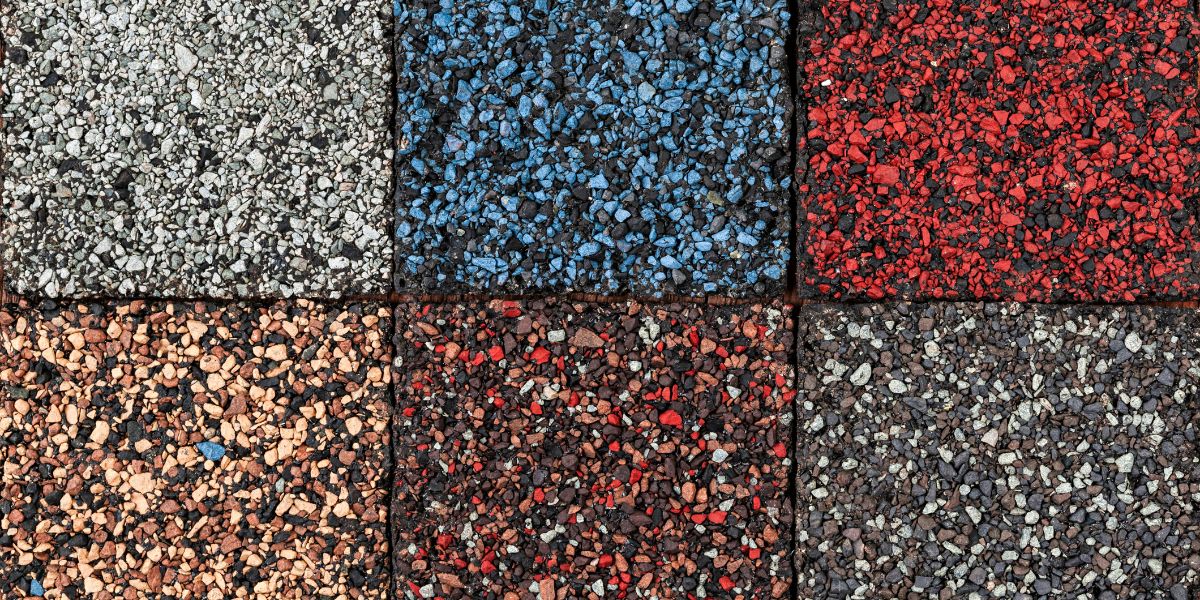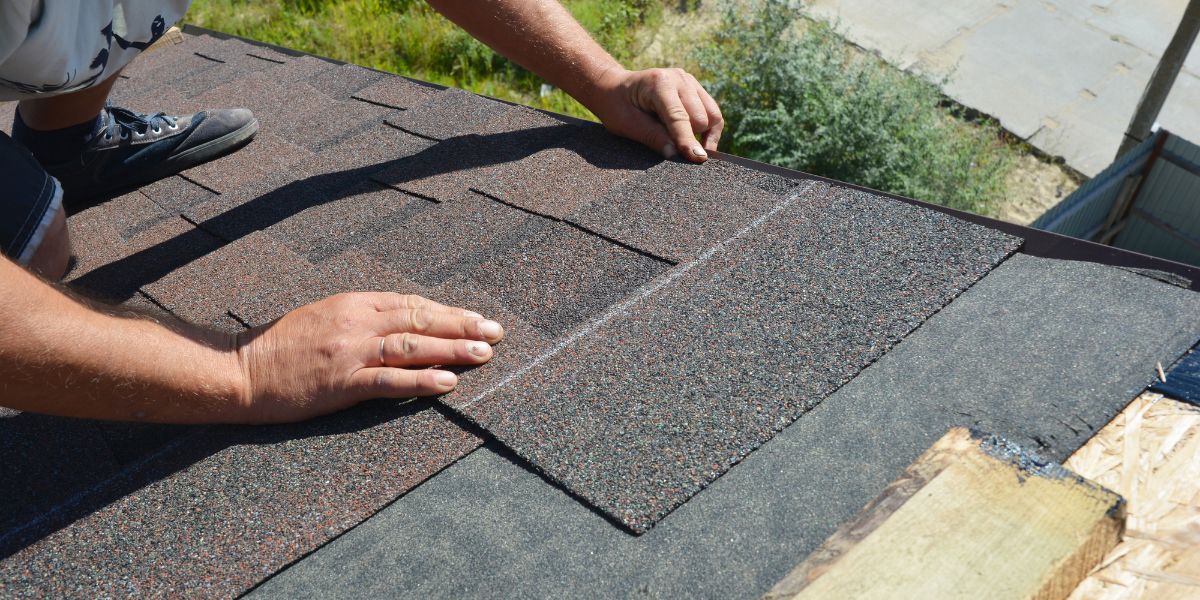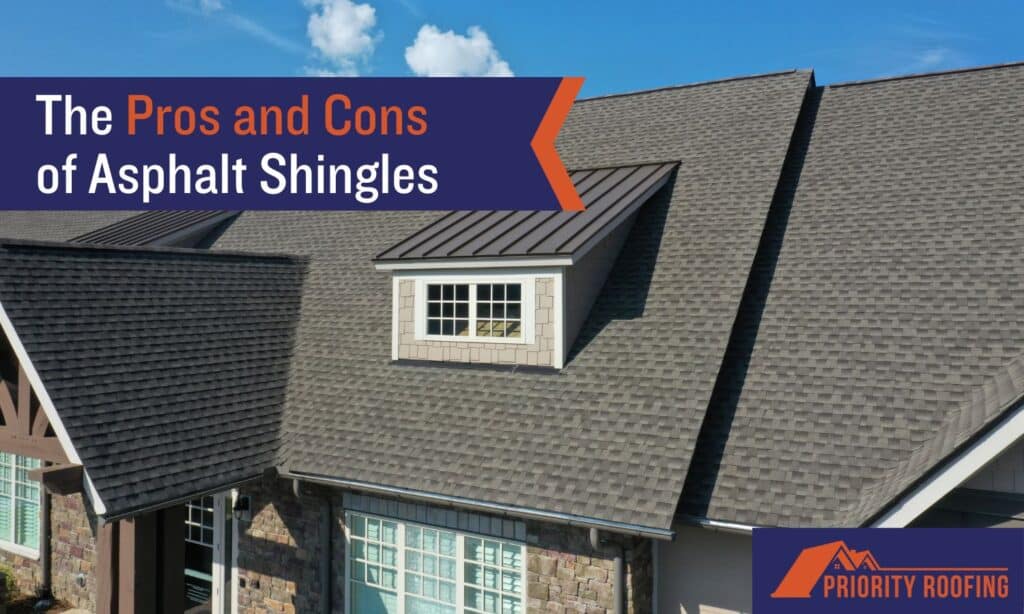Asphalt shingle roofing is probably the first roof you think of when considering your options. Asphalt shingle roofs are the most common type in the United States. There are other options to choose from. How do you know if asphalt shingles are the best choice for you?
Roofs come in many different types, each with its advantages and disadvantages. Before you decide on a roofing material, it’s vital to consider its pros and cons. After all, the roof is crucial to protecting your home and your family. The last thing you want is to pick a roofing material that does a poor job protecting your home and requires constant repair. That can get quite expensive as it adds up over time.
This guide will help you make an informed decision by examining the pros and cons of asphalt shingle roofing.

What are the pros of asphalt shingle roofing?
Asphalt shingles are among the most common types of roofing. They are popular with homebuilders for four reasons: ease of installation, low price, long life, and large color and style selection.
Easy installation
Asphalt shingles offer the most flexibility and ease of installation among all roofing products.
Low cost
Asphalt is not just a cheaper material for shingles, but also easier to work with. This makes it less expensive to install asphalt shingles. Asphalt shingles can reduce roof replacement costs, making them the most cost-effective option.
Long lifespan
Asphalt shingles can last anywhere from 15 to fifty years, with thicker shingles reaching the end of this spectrum. You can therefore get warranties for materials of higher quality that will last decades.
Color and style selection
Asphalt shingles come in a wide variety of colors and styles. This is an excellent choice for homeowners looking to customize their roofs. You can also add solar shingles for energy efficiency or style to your roof by painting asphalt shingles.

Easy replacement
Asphalt shingles can be easily replaced, even if they are damaged or have fallen off. It is possible to replace a single shingle, or even a small section of asphalt shingles, that has been damaged by a tree branch or hail. This can save you thousands of dollars by delaying the need to replace your roof.
Warranty availability
When installed and maintained correctly, shingles roofs can last anywhere between 15 and fifty years. Good manufacturers offer warranties for their products. Some of the best materials come with warranties that can last up to 50 years. These products are more expensive than those with shorter warranties and expected lifetimes, but the cost can be justified by a roof that is more durable, reliable and lasts longer.
What are the cons of asphalt shingle roofing?
There are some downsides to asphalt shingle roofing that you should consider before making a decision. If you decide asphalt shingles are not for you, there are other types of roof shingles that could be a better fit.
Requires periodic maintenance
While it is easy to install asphalt shingles, roof maintenance can be quite extensive as they need to be inspected often and get frequently repaired. You need to check them regularly for moss and algae and make sure severe weather has not damaged them. It is also smart to watch for low tree branches that could damage your shingles.
Low insulation value
Some roofing materials do a great job of insulation, which saves money on your energy bill. However, asphalt shingles are not one of those materials, so if that is important to you, you may want to consider other options.
Environmental impact
While some manufacturers are more environmentally friendly than others, shingles are made from petroleum and fiberglass, so they are not the greenest option out there. Petroleum is a fossil fuel that, when combusted, releases greenhouse gasses into the environment. Also, the production of fiberglass releases toxic air pollutants like styrene into the air.

Sensitivity to temperature
Because they are made of asphalt, and asphalt can be sensitive to extreme cold and hot, shingle roofs may also be sensitive to temperature swings. Temperature fluctuations can cause expansion and contraction that result in cracks. Extremely hot temperatures and blazing sunlight can cause shingles to shift, expand, contract, crack, and shed granules, leading to a loss of waterproofing and a proclivity to leak.
Timing of installation
That sensitivity to temperature means you need to time your shingle installation properly. Asphalt shingles should only be installed in warmer temperatures, as installation during cold and freezing temperatures can cause them to crack or become damaged. But do not wait for a hot day, either, as shingles usually absorb heat from the sun, making the surface dangerous on hot days.
Shorter lifespan than other options
Asphalt shingles simply do not last as long as other residential roofing options, with an expected lifespan of 15 to 50 years. But do not be fooled by that wide range–most 3-tab shingle installations last about 20 years, architectural shingles top out at about 25 years, and luxury shingles last about 30 years. Synthetic shingles, on the other hand, skew the average because they can last 30 to 50 years in more moderate climates.
In contrast, these are the average lifespans of other common roofing materials:
- Metal roofing: 40 to 80 years
- Wood shake roofing: 30 to 50 years
- Clay and concrete tile roofing: 50 to 100 years
- Slate roofing: 60 to 175 years
Wind uplift
Asphalt shingles, especially cheaper ones, are vulnerable to strong winds and gusts. In some cases, they can flip up, tear, and even detach completely. This will allow rain and water to enter, so you will need to watch for damaged or missing shingles and replace them immediately.

Fire resistance
If you live in an area prone to wildfires, you should think twice before installing asphalt shingles on your home, garage, or outbuildings. Asphalt will melt and burn, and flying sparks can ignite shingles. In fact, some insurance companies require homes in fire-prone areas to have roofing that is not asphalt-based. Instead, look into metal, slate, clay tiles, or another fire resistant roofing type; that can include fiberglass-backed shingles with a fire resistant underlayment, if you are determined to install shingles.
Not unique
Asphalt shingles are oh-so-common, and they likely will not help your home to stand out from the rest of the houses on the block. If you want a unique-looking roof, there are many other less common options that can fit your home’s aesthetic. These may also raise the value and curb appeal of your house.
Conclusion
As you can see, there are many factors to consider when replacing your roof. And the pros and cons of using asphalt shingle roofing listed above are important to keep in mind when it comes time for that new roof.
Whatever your decision, Priority Roofing can help. Call us today for a no obligation quote for your next roof. We would love to be your trusted roofing contractor.

